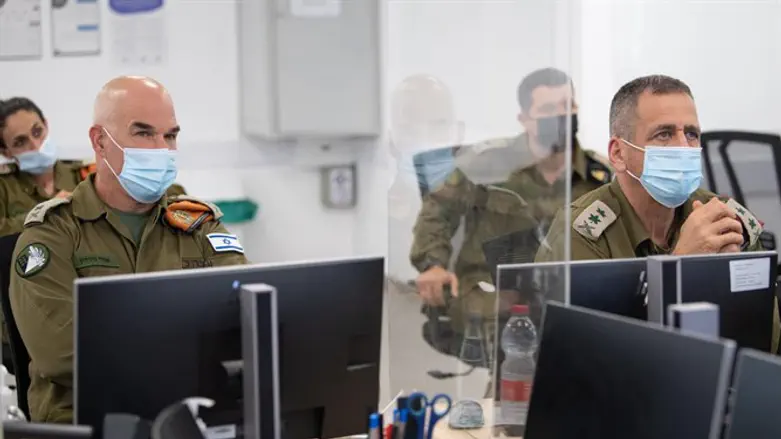
In the coming days, the IDF’s Home Front Command will be recruiting 600 paramedics from reserve forces, in advance of the government’s expansion of eligibility for the coronavirus vaccine booster shot to the over-40 or over-50 age group.
The new medical teams will also be taking part in the government’s huge program to test over a million school-age children for coronavirus and/or antibodies, prior to the beginning of the new academic year.
The Home Front Command will be organizing around a thousand soldiers to serve in various capacities related to the coronavirus epidemic. Among the soldiers recruited for these tasks will be epidemiological researchers and paramedics.
“We have already garnered a great deal of experience from working with the haredi sector in conducting serological tests,” a senior officer in the Home Front Command said on Thursday. “Parents have been extremely cooperative, sending their children to be tested before studies resume.”
“From the tests, it emerged that around 20% of haredi school-age children have antibodies to coronavirus,” he added, “indicating that they have recovered from the virus in the past, even if they didn’t display symptoms. These children will receive a recovery certificate and will not be obligated to quarantine even if a fellow class member tests positive for the virus.”
Testing in the general sector will commence with elementary grades and will later be expanded to older classes.
In addition to their contribution to serological testing, Home Front Command reservists will be dispatched to local authorities in order to reopen special departments in hospitals where new coronavirus patients will be processed. Two such departments are expected to open in the next few days.
Other reservists will be participating in the “Anshei Chayil” program which provides information as well as food baskets to welfare recipients, in order to help them cope with the fallout from the coronavirus epidemic.
“We started out with a capacity of conducting 20,000 serological tests per day, and over time we increased that capacity to 130,000 and we will soon reach 150,000 per day,” the officer noted. “We also operate three quarantine and recovery hotels, which are mainly designed to house foreign workers.”
“I stress that we will not succeed in our tasks without the cooperation of the general population. Our aim is to implement the government’s policies, and to enable us all to continue with our daily lives alongside the coronavirus.”
